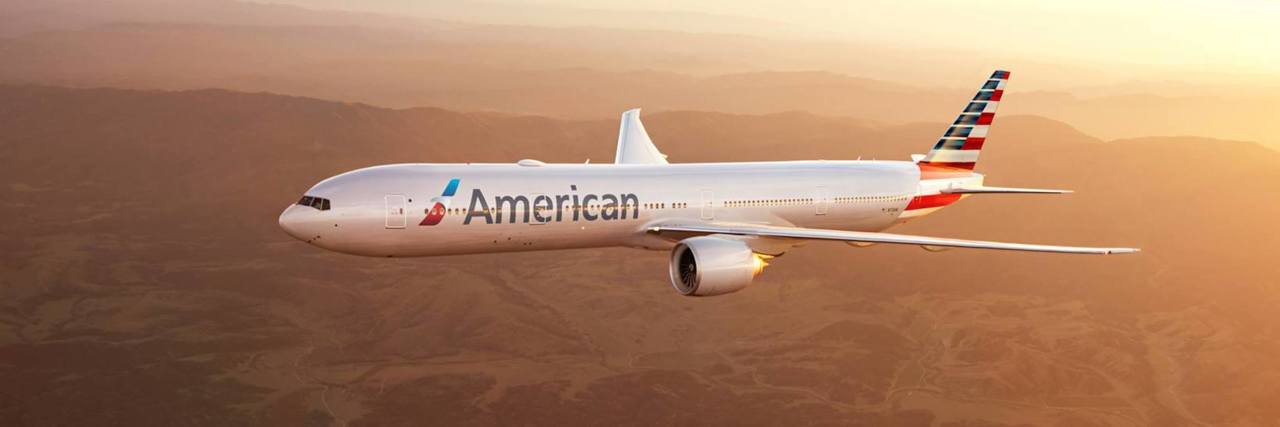American Airlines to Allow Passengers With Nut Allergies to Pre-Board to Wipe Their Seats
I was watching the election results when it flashed across the top of the screen, touted as breaking news: “American Airlines says will allow customers with peanut and tree nut allergies to pre-board flights in order to wipe down seats to remove allergen residue, effective of December 12, 2018.” As an advocate for all those flying with food allergies, this statement was significant because American Airlines previously prohibited those with peanut and tree nut allergies from pre-boarding.
The national food allergy organization, Food Allergy Research and Education (FARE), with the assistance from lawyer Mary Vargas of Stein & Vargas, filed a complaint last year with the U.S. Department of Transportation over American Airlines’ policy that expressly forbids allergic passengers to pre-board to wipe down the seating area.
As a food allergy mom, many times I have had to fight the large crowd during general boarding to rush and clean the seat area where my son has to sit and each time I hoped I had enough time to do a thorough job cleaning my area for past nut residue.
I believe the most critical precaution one can take is to pre-board the aircraft in order to be able to thoroughly remove any residue from the seat, tray and general area. This becomes even more important if the airline you have chosen serves your allergen.
Think about how children are especially likely to put their hands in their mouths. Those without food allergies worry about the germ factor on planes, but for a food allergic person, what was eaten before we boarded is potentially lethal if we touch it and then ingest it.
The images tell the story- if this young girl was in the seat before you – please tell me honestly U could clean the area thoroughly during a general board
This is WHY pre board is so important to mitigate risk of #anaphylactic reaction #foodallergy #travelskills #aviationsafety pic.twitter.com/CN0iDtkEZl— Lianne Mandelbaum (@NoNutTraveler) November 9, 2018
In the past few days, I have seen many comments on social media saying that people with food allergies don’t need to board early and that food allergy passengers just want to get to the overhead space first. This is simply not true.
Why the pre board is so critical- those who have been levying statements re @americanair decision saying that those with #peanutallergy don't really need to clean -its just a way to get on early to get overhead space have to understand the inherent danger of past contamination https://t.co/0mxWyw0XXl
— Lianne Mandelbaum (@NoNutTraveler) November 9, 2018
Please realize that so many people, including airline staff, are not educated as to what having a food allergy means when traveling. They often think, “Just don’t eat food with your allergen.” Yet the reality is far more complicated than that. A person with a food allergy who ingests even a tiny amount of food — say a leftover smear on an airline tray or dust that settled from a previous passenger’s bag of nuts — could set off anaphylaxis (a severe and possibly fatal allergic reaction).
People also wrongly assume that epinephrine auto-injectors will always reverse an anaphylactic reaction. Time is of the essence in an allergic reaction and delayed administration of epinephrine can lead to fatal consequences. The instructions on the auto-injector tell you to administer and get to a hospital immediately. Travel by air is a unique situation for those with food allergies because passengers are in an enclosed space that is far away from immediate medical care, so taking basic precautions to mitigate the risk, like pre-boarding, become more critical.
I would be remiss not to note that this change in policy does not answer the complaint filed by FARE. The complaint was filed on behalf of all those who live with life threatening allergies — it is not only peanuts and tree nuts that can cause fatal anaphylaxis. Any person with a food allergy should have the right to pre-board and clean their area.
It is my contention that all airlines should also all stock easy to use auto-injectors concurrent with education on anaphylaxis. Food allergies are a growing public health concern and it is time for airlines to partner with food allergic passengers to mitigate the risk of an inflight reaction.
Banner image via Facebook.

